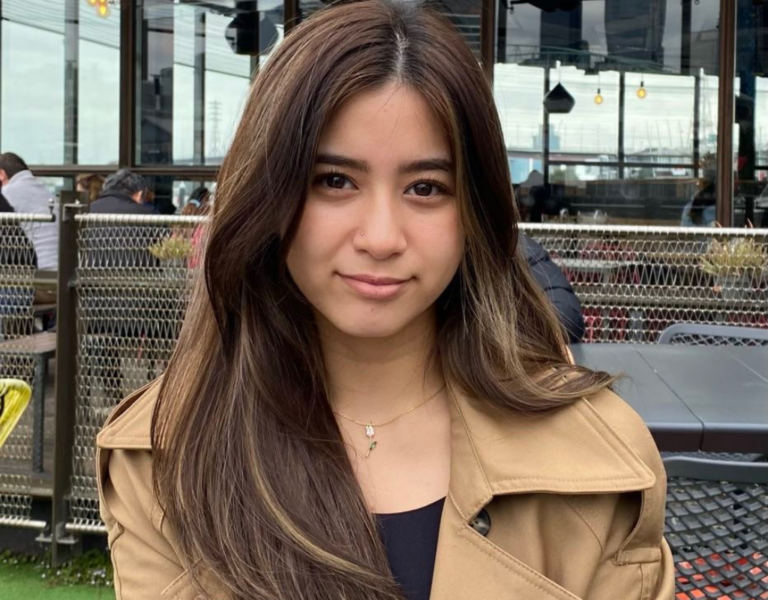
For many high school graduates, the path from A-Levels or the International Baccalaureate (IB) Diploma Programme to university and straight into a career is often seen as the most straightforward route.
But Danielle Goh decided otherwise.
After completing her A-Levels at HELP International School in Malaysia, Goh opted for a gap year.
This year-long break to step away from the traditional academic route and gain valuable life experiences through travel, volunteering, internships, or work experience often occurs between high school and university.
According to a survey conducted by the American Gap Association, the number of students taking a gap year has increased by 33% in the past decade. This reflects changing attitudes towards education, with more students seeking experiential learning opportunities beyond the traditional classroom.
One notable example of a gap year’s impact is Malia Obama, the eldest daughter of former US President Barack Obama, who took a gap year before starting her higher education at Harvard University.
Her gap year involved interning at the Weinstein Company, the largest mini-major film studio in North America, and travelling to Bolivia and Peru, which provided her with valuable experiences and insights that enriched her academic and personal journey.

Goh spent four months (full-time) at Lush Fresh Handmade Cosmetics, where she completed a training programme covering skin and hair care, Lush’s core philosophies, and advanced customer service techniques. Source: Danielle Goh
Similarly, during Goh’s gap year, Goh experienced growth and gained increased clarity about her goals.
She took on a full-time job in Genting Highlands, a place out of Goh’s home state and a primary tourist attraction for travellers in Malaysia. There, she earned a salary for the first time, and began to understand the responsibilities of financial independence — something that 88% of adults in the US need to work on, says a 2023 report on financial literacy.
“I figured this would be a fun opportunity to get a feel of what it’s like to live away from home but still in Malaysia, and I also thought it would be an interesting experience I wouldn’t be able to have once I left the country,” said Goh.
Goh worked at retail stores in Lush and Coach, where her shifts were mostly eight to 12 hours, five days a week. These work stints allowed her to acquire skill sets “vastly different from the ones I had learned in school, and I’m forever grateful for them.”
The benefits of taking a gap year didn’t stop there too.
At Swinburne University of Technology, she joined various clubs and applied for leadership positions. The committees recognised her extensive prior experience in team settings and high-pressure environments, and it was considerably easier for Goh to be accepted into and thrive within multiple committees and associations.
“I feel like there’s this stigma around starting university at a later age than your peers, and I don’t see why that’s a bad thing,” she says. “There is no rush to start studying again as soon as possible, and you might even miss out on important experiences.”
Goh’s advice is timely, as A-Level results are being released on August 15, 2024.
If you don’t achieve the grades you hoped for or fall short of meeting your conditional offer into a UK university, don’t lose hope — you can explore the option of Clearing.
Clearing is how universities and colleges fill any remaining places on their programmes.
UK’s premier Universities and Colleges Admissions Service (UCAS) revealed that 67,990 students found a place using Clearing in 2023, the highest number to date.
Of these, 32% found a place after declining their original firm choice, 30% found a place after not meeting the terms of their offer and being released into Clearing on results day, and the remainder either applied directly into Clearing or held no firm choice.
Alternatively, you can consider taking a gap year like Goh did. Find work, gain experience, and use this time to grow personally and professionally before starting your university journey.
We caught up with Goh to learn more about her gap year experience and how it has helped her with her higher studies today.

Goh’s gap year resulted from a series of decisions she made after completing her A-Levels. Source: Danielle Goh
What specific challenges did you face, and how did you overcome them? Did your parents welcome the idea?
My mother more than welcomed the idea of my gap year; she thought this was a good opportunity for me to experience working life in a safe setting. The real challenge was feeling left out watching my peers move on to university while I stayed home.
But it’s here that I began to understand that there is no rush to graduate and that life experiences can manifest in many different ways. I have to thank my co-workers for teaching me this at the time.
During my gap year, I was also able to practise my Malay, which I was less than fluent in before I started working, but I improved heaps throughout the year.
You mentioned working full-time in retail. What was your day-to-day was like in that job?
My work involved standard retail operations, including waking up early to open the shop, preparing items for sale, and carrying out any management-sent action plans. At night, I would count cash, occasionally conduct audits, tidy up, and close the shop.
Other than that, the work was mainly customer service-focused. In both positions, I’ve been in customer consultations, and product demonstrations took up most of my time (and tons of chit-chatting). Throughout the year, I loved talking to the regulars and meeting new people. Who would’ve known that working retail was also a really good way to network?
I also received lots of amazing job offers throughout my time that proved to be beneficial in the long run.
Did you find that your gap year provided you with a clearer sense of direction regarding your academic and career goals?
From a young age, I always knew what I wanted to study and what career paths I was keen on, but at the time, I was unsure which universities I wanted to apply to.
On one hand, I wanted to find a university with a good social science programme but also something that fits within my budget. I was also trying to figure out the logistics of moving abroad, like where I would live, monthly budgets, and how to care for myself.
Exploring all the different universities and degrees was very overwhelming, and the gap year gave me time to think and weigh my options while still being productive and keeping myself occupied.
If I hadn’t taken my gap year, I don’t think I would’ve come across my particular programme and the amazing scholarship Swinburne had to offer me.

Today, Goh is a recipient of the Swinburne Academic Excellence Scholarship and is studying BA in International/Global Studies at Swinburne University of Technology. Source: Danielle Goh
How did your gap year experience influence your personal growth and development, particularly compared to peers who proceeded directly to university?
My parents have provided me with complete support throughout my entire life. They have always met my needs, but the value of money and the significance of budgeting were never instilled in me. Spending time in the “working world” taught me about independence and responsibility.
In school, my mother always woke me up, made breakfast, and drove me to school, where we were always given periodic breaks between classes. At work, it was a different environment. I am responsible for all of my tasks and for organising my time in a way that allows me to keep a decent work-life balance. Also, I had to handle my own budgeting after receiving my salary, which is something I have never learned in school.
Working with people of all sorts of backgrounds was another aspect of self-growth.
In school, most of my peers had a lot of things in common; we were all of similar age, had similar interests, and were all growing up in the same environment. At work, my coworkers were in different life cycle stages with entirely different experiences from mine. We exchanged stories and perspectives, which opened my eyes to how different life can be for each of us. I will always be grateful for the life lessons I learned that year.
Looking back, would you recommend taking a gap year to other students?
Generally, yes, I would recommend it. That is, provided that you are dedicated to maintaining a busy schedule. I think it’s particularly good for those who aren’t sure what or where they want to study or simply want to experience something new.
While I worked, I’ve seen others go on educational study tours to different countries, spend their time volunteering, start online businesses, and do internships. There are so many things you can do with that time. Gap years can provide you with a plethora of opportunities and experiences that you might not get again once you start university.










